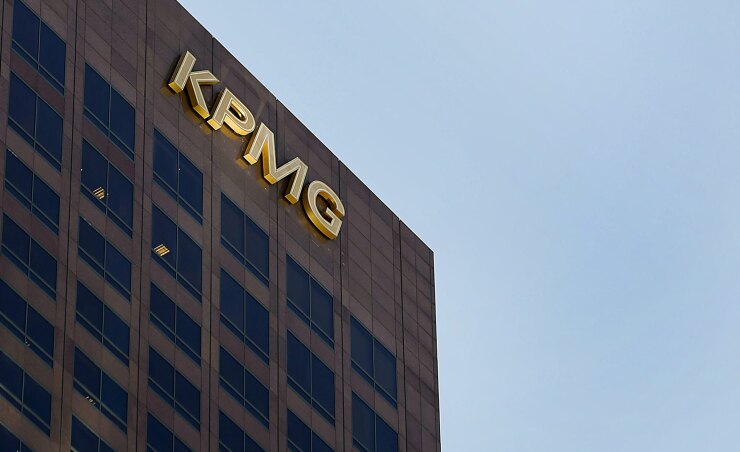
KPMG LLP is coming under increasing pressure in South Africa over work done for the wealthy Gupta family, with Finance Minister Malusi Gigaba calling on all government entities to review work with the auditing firm.
An influential business lobby group suspended the company’s membership and the governor of the central bank said it was concerned that KPMG’s internal standard controls aren’t of an acceptable quality. Former Finance Minister Pravin Gordhan weighed in, telling the company’s global chairman, John Veihmeyer, that he strongly disapproved of the firm’s work relating to South Africa’s tax authority.
“As a measure to restore confidence in audits, all of government and its entities must consider reviewing their work programs with KPMG to ensure their audit processes haven’t been compromised in any way,” Gigaba said in an e-mailed statement on Friday. Law enforcement agencies and bodies such as the Independent Regulatory Board for Auditors should also look into the matter and impose sanctions, he said.
The Big Four firm is emerging as the most prominent international company to be snared in the South African scandal, after admitting that work for the Guptas fell short of acceptable standards. The family are friends with President Jacob Zuma and in business with one of his sons, and have been accused of using the connection to influence government appointments and win lucrative state contracts. They and Zuma deny wrongdoing.
Mea Culpa
The accounting firm said last week that eight senior executives from its South African office had quit and that it would donate 40 million rand ($3 million) to anti-graft and education charities. It also offered to repay the 23 million rand fee it received for the work done for the tax authorities. The mea culpa has done little to stem the flow of recriminations in the country.
Sasfin Holdings Ltd., a financial services company, said on Tuesday it replaced KPMG as its independent auditor and is seeking a new one, while lenders including Barclays Africa Group Ltd. and Investec Ltd. said they are reviewing their relationship. Sygnia Ltd., a Cape Town-based money manager, terminated KPMG’s services in July, while Hulisani Ltd., an energy investor, is seeking shareholders’ permission to replace KPMG with PricewaterhouseCoopers LLP.
Shortly after Gigaba’s statement, the National Assembly’s medical-insurance plan also said it had decided to drop KPMG. Business Leadership South Africa, which includes chief executive officers of some of the country’s largest businesses, said earlier on Friday that KPMG has been suspended from the group pending the outcome of an independent probe into its involvement in so-called state capture, or the influence of private interests over political appointments and state contracts.
The Democratic Alliance, the biggest opposition party, said in a statement it will review all KPMG contracts in the more than 30 municipalities it controls. The party runs Johannesburg, the financial center, and the capital, Pretoria, in cooperation with other smaller parties.
Undermine Confidence
KPMG’s internal inquiry criticized its work for the Guptas, and said the company should’ve resigned as their auditors sooner than March 2016. The report said work on the Guptas’ acquisition of a coal mine and the attendance of four KPMG partners at a Gupta family wedding was particularly questionable.
“These developments further threaten to undermine our efforts in reinforcing confidence and enhancing a climate for investments, both domestic and international,” Gigaba said.
Mckinsey & Co. has said it’s carrying out an internal probe into work done for state power utility Eskom Holdings SOC Ltd. after it was alleged that the U.S. firm helped secure work for Trillian Capital Partners Ltd., linked to the Guptas. McKinsey denies involvement in corrupt practices and the payment of bribes. U.K. public relations firm Bell Pottinger was the first prominent victim of the scandal, filing for administration after being found to have run a racially divisive social media campaign on behalf of the Guptas.
In work unrelated to Gupta companies, KPMG said it had compiled a report for the South African Revenue Service that had inadvertently been used as evidence that Gordhan knew of the creation of a rogue intelligence unit. Gordhan was investigated by police for his role in the setup of the department, although no charges were ever brought.
“KPMG has a moral duty to account for its conduct to the South African public and they have to be frank, unequivocal and transparent,” said Gordhan, who was fired by Zuma at the end of March.





